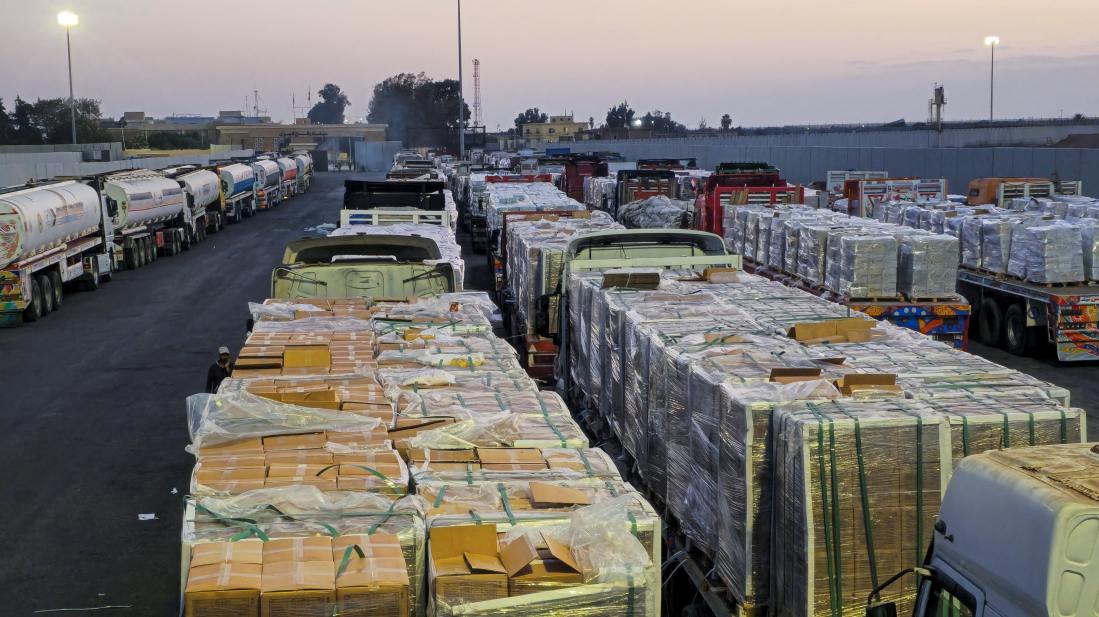General strike, protests paralyse Tunisia's Gabes over pollution crisis
A general strike and mass demonstrations paralysed the southern Tunisian city of Gabes on Tuesday, as tens of thousands of people demanded the closure...

Israeli Prime Minister Benjamin Netanyahu said the Rafah border crossing between Gaza and Egypt will remain closed until Hamas returns the bodies of deceased hostages, as both sides traded blame over alleged ceasefire violations.
The announcement came after the Palestinian embassy in Egypt said Rafah would reopen on Monday for entry into Gaza. Netanyahu rejected that claim, saying reopening depended on Hamas fulfilling its commitments under the U.S.-brokered ceasefire.
Washington later said it had received “credible reports” of an imminent Hamas attack against civilians, warning it would be a “grave violation” of the truce. Hamas denied the accusations, blaming Israel for arming “criminal gangs” in Gaza and accusing the U.S. of echoing what it called a “misleading narrative.”
Bodies, aid, and fragile peace
Israel said it had received 12 out of 28 hostage bodies agreed under the ceasefire deal, while Hamas insisted the search for others was slowed by rubble and aid restrictions. The militant group accused Israel of blocking equipment needed for recovery efforts.
The war has left Gaza devastated. Nearly all residents have been displaced, famine has been confirmed by global monitors, and hospitals remain overwhelmed.
Under the U.S.-brokered agreement, Hamas released all 20 living Israeli hostages in exchange for nearly 2,000 Palestinian detainees. Israel, in turn, was to return 360 bodies of Palestinian militants for the deceased Israeli hostages, so far, only a fraction of that has happened.
Unresolved issues in Trump’s plan
Rafah has largely remained shut since May 2024, reopening only briefly during humanitarian pauses. The current truce increased aid deliveries to about 560 metric tons of food per day, still far below Gaza’s need, according to the U.N. World Food Programme.
Major questions remain unresolved under U.S. President Donald Trump’s 20-point peace plan, including Hamas’s disarmament, Gaza’s future governance, and the composition of an international stabilisation force. The creation of a Palestinian state also remains uncertain, a formidable obstacle to lasting peace.
At least 69 people have died and almost 150 injured following a powerful 6.9-magnitude earthquake off the coast of Cebu City in the central Visayas region of the Philippines, officials said, making it one of the country’s deadliest disasters this year.
A tsunami threat was issued in Chile after a magnitude 7.8 earthquake struck the Drake Passage on Friday. The epicenter was located 135 miles south of Puerto Williams on the north coast of Navarino Island.
The war in Ukraine has reached a strategic impasse, and it seems that the conflict will not be solved by military means. This creates a path toward one of two alternatives: either a “frozen” phase that can last indefinitely or a quest for a durable political regulation.
A shooting in Nice, southeastern France, left two people dead and five injured on Friday, authorities said.
Snapchat will start charging users who store more than 5GB of photos and videos in its Memories feature, prompting backlash from long-time users.
The inaugural meeting of defence ministers from Central Asian nations took place in Samarkand, Uzbekistan.
The Georgian Defence Minister Irakli Chikovani was in Yerevan, Armenia on Monday for an official visit following an invitation by his Armenian counterpart Suren Papikyan.
Tehran and Baku have pledged to increase cooperation between the two countries across all fields, after an all-important meeting on Monday in Iran's capital city.
Azerbaijani President Ilham Aliyev has announced the lifting of restrictions on the transit of goods to Armenia through Azerbaijani territory, during a meeting with Kazakhstan’s President Kassym-Jomart Tokayev.
Azerbaijan and Kazakhstan signed a joint declaration and pledged closer cooperation on Tuesday, as their presidents hailed a new era of regional connectivity and peace following a summit in Astana.
You can download the AnewZ application from Play Store and the App Store.

What is your opinion on this topic?
Leave the first comment